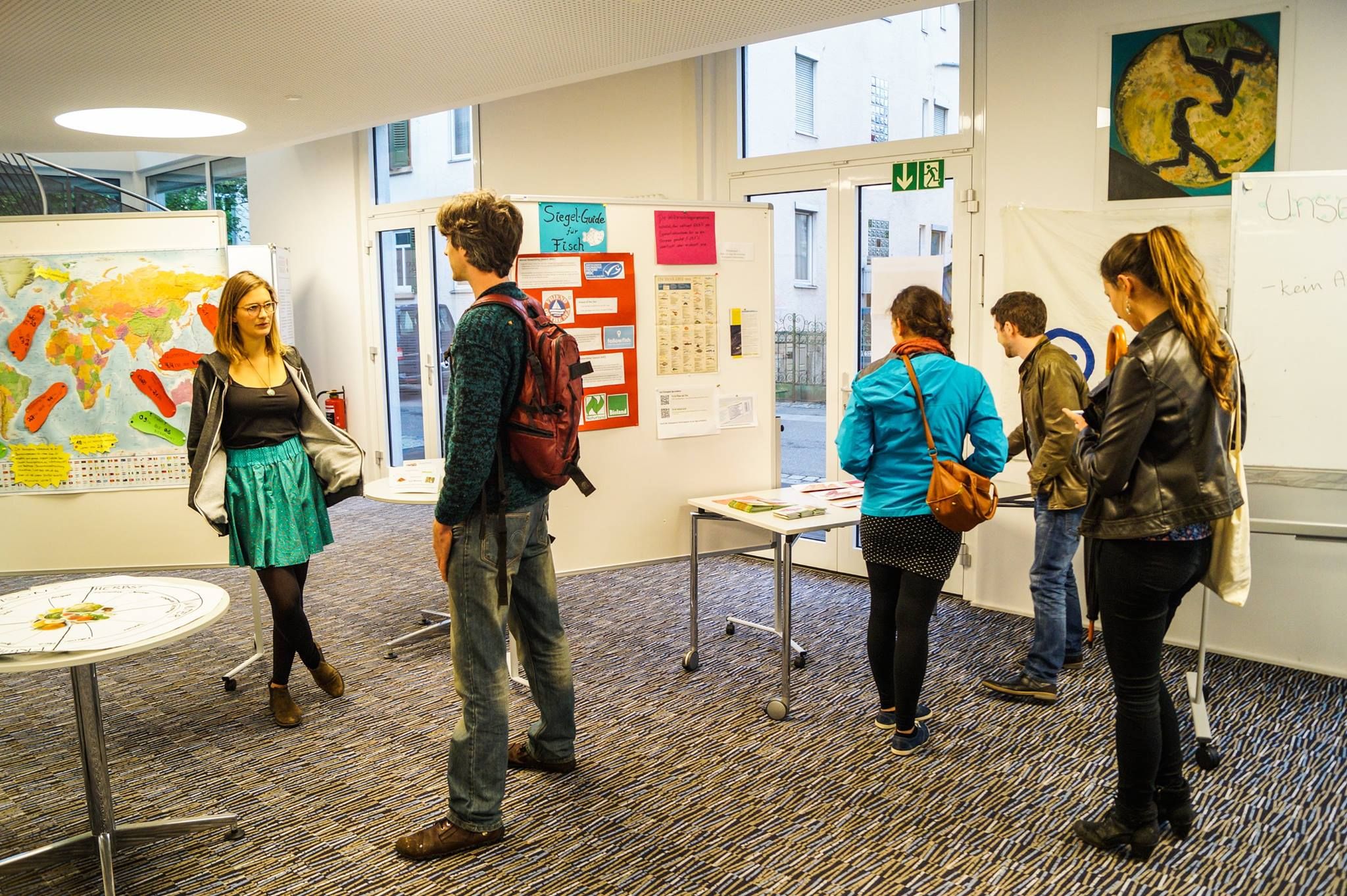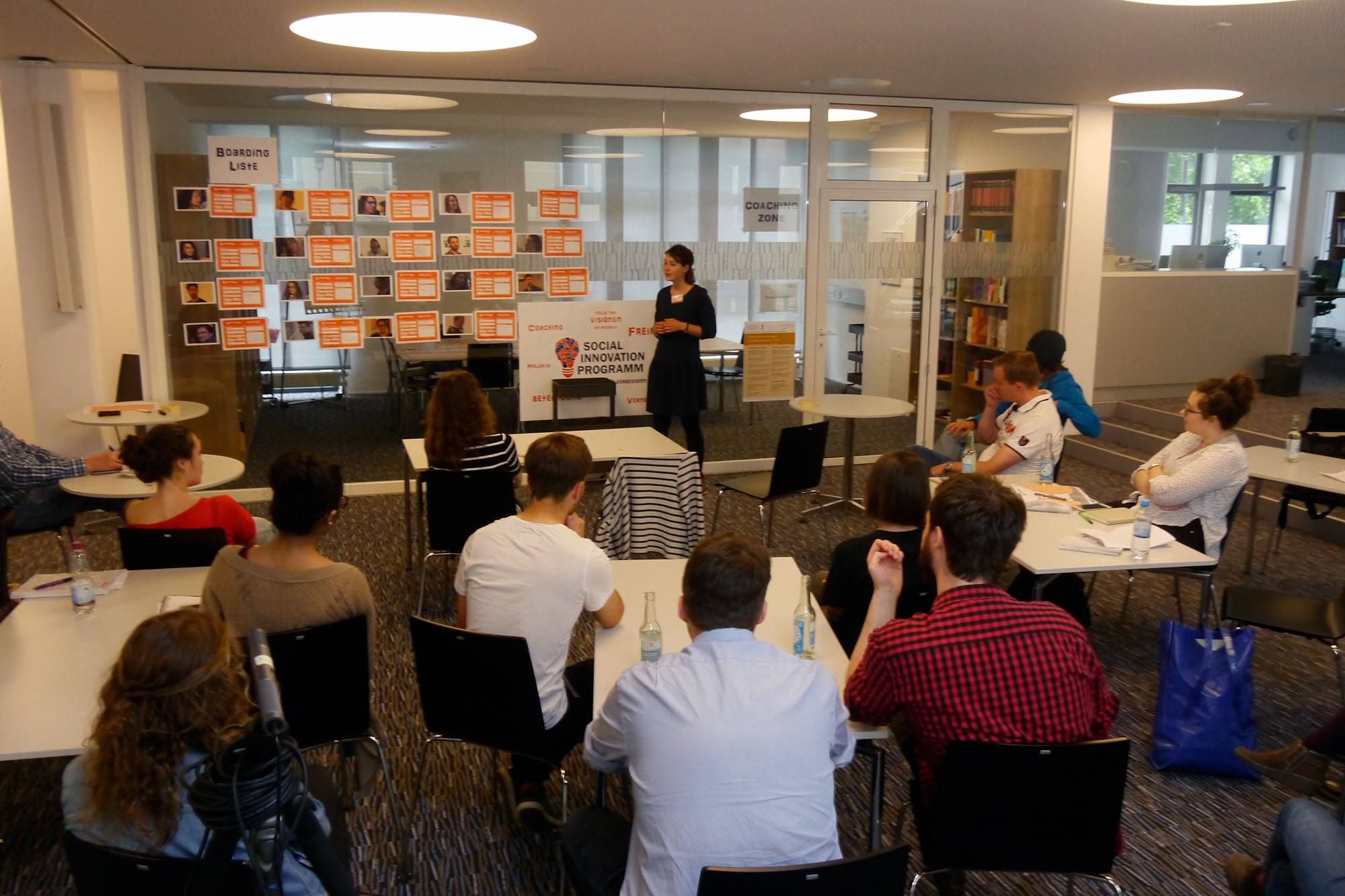Global Citizenship At Tübingen
Like other MNU members, the University of Tübingen is involved in a wide range of activities relating to global citizenship; examples of some of these activities are provided below (though this is not an exhaustive list).
STUDENT EMPOWERMENT AND ENGAGEMENT
At the University of Tübingen, voluntary engagement in student initiatives may be eligible for ECTS credits under certain conditions. Furthermore, the Career Service supports and encourages student initiatives through workshops and regular meetings for reflection throughout the semester. The (successful) combination of voluntary commitment and studies is the goal of the teaching and learning format “Service Learning”. The Career Service supports this combination within the framework of the project “Scientific Education and Social Responsibility” through the promotion of Service Learning projects that are initiated by students.
The World Citizen School, hosted by the Global Ethic Institute, is a free learning space and network of more than 18 student initiatives concerned with public well-being at the University of Tübingen. The World Citizen School is an innovative learning environment in which students a) organise their education themselves, b) learn from one another in informal and interdisciplinary networks and c) are supported through an engagement-promoting program for their activities. The World Citizen School is organised by the students themselves under the guidance of a Global Ethic Institute doctoral candidate and supported by senior staff with regular input from external lecturers, coaches and mentors.
This is a student initiative pursuing the integration of Sustainable Development as a general principle into university management, research activities and teaching.

EDUCATION
The Studium Oecologicum is a major initiative to boost Education for Sustainable Development within the curriculum and comprises seminars on a broad spectrum of issues relating to sustainable development. Bachelor and Masters students from all disciplines can receive credit points for attending these seminars.
A School for Sustainability is currently being developed at Tübingen to strengthen and structurally anchor the university’s objectives relating to sustainable development. The School’s long-term goals include anchoring the perspective of Sustainable Development in the curricula of all subjects, linking and further developing research projects and networks, and supporting all members of the university in establishing contacts and finding partners or expertise within and beyond the university.

The Advisory Board for Sustainable Development was created to contribute to a strategy for sustainable development in teaching, research and administration, and to its implementation. The board is made up of c.25 people from the professorate, the non-professorial teaching staff, the administration, one external member and the student body. As students are the biggest group at universities, they are represented by five students to ensure student participation and empowerment on a higher administrative level.
Latest Posts From Tübingen
CONTACT DETAILS

Thomas Potthast
Executive Director and Scientific Co-ordinator, International Centre for Ethics in the Sciences and Humanities (IZEW)
potthast@uni-tuebingen.de
MNU Co-ordinator: Karin Moser v. Filseck
